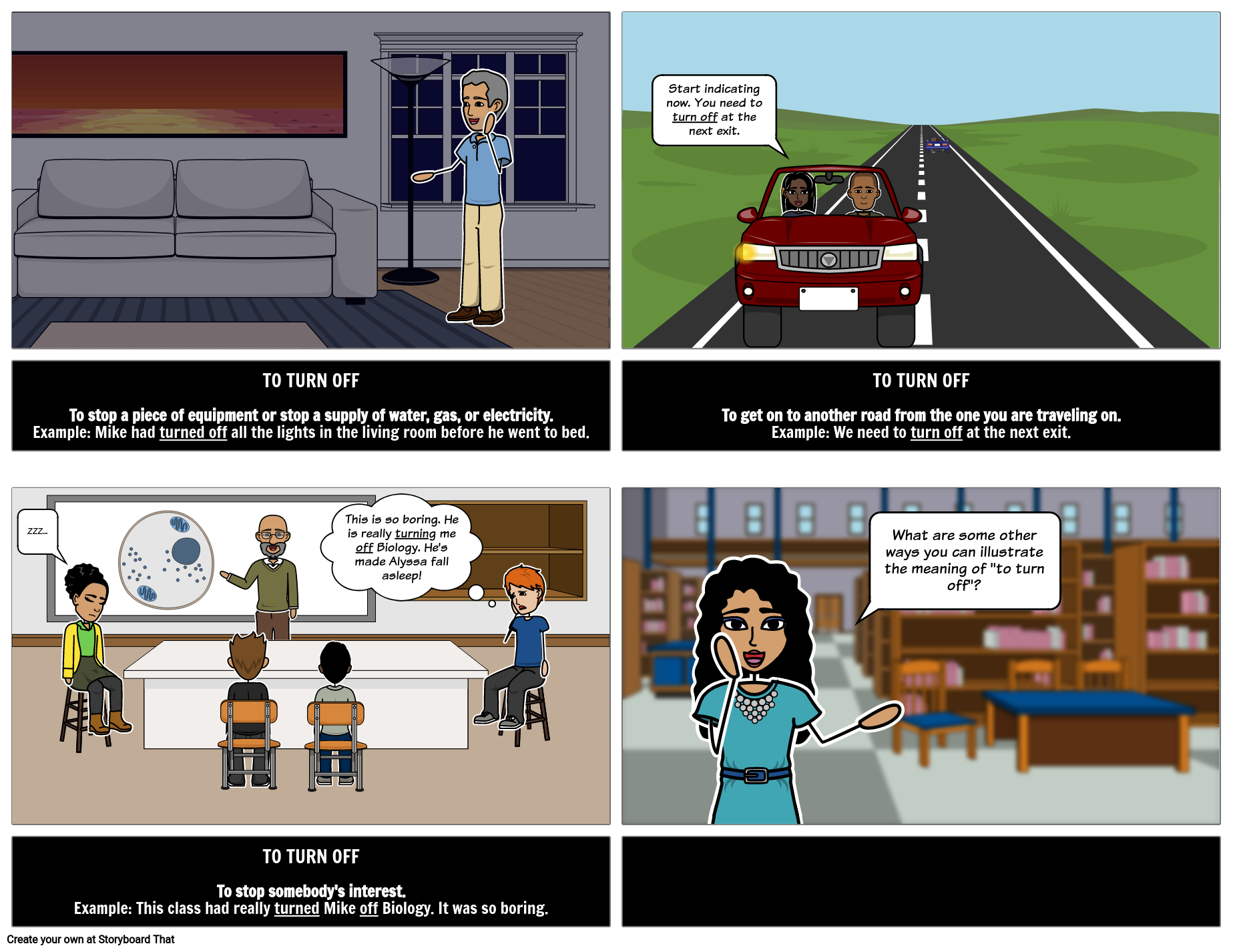To stop a piece of equipment or stop a supply of water, gas, or electricity
To stop someone's interest
To get on to another road from the one you are traveling on
Example Sentences for the English Phrasal Verb Turn Off
- Turn off the TV when you are not watching it to save money on your bill.
- He was so boring. He really turned me off economics.
- Can we turn off at the next exit? I need to use the bathroom.
- Don't turn off the lights until you have checked that everyone is out of the building.
- Turn off just up ahead! I see something!
English Phrasal Verbs
Phrasal verbs can be extremely tricky for learners of English. The reason for this is twofold: there are lots of them and their meaning is not always obvious from the words that make them up. To make things even more difficult, phrasal verbs can have multiple meanings, adding to the headache for learners.
A phrasal verb is made up of a main verb with an attached preposition or adverb. An example of a phrasal verb is run into. Where run is the main verb and into is the preposition. Phrasal verbs can be separated into two groups, intransitive and transitive verbs. Intransitive phrasal verbs do not have a direct object: go out, for example, "I want to go out tonight". Transitive phrasal verbs have a direct object and they can be split up into two further categories: separable and inseparable. With separable transitive phrasal verbs, the verb and the preposition can be split up. For example, both “turn off the radio” and “turn the radio off” are both correct. Inseparable phrasal verbs cannot be split up. For example, “I’ll look after you” is correct, but “I’ll look you after” is not.
Using Storyboard That you can prepare a visual dictionary of phrasal verbs quickly and easily. Even better than that, have your students create their own phrasal verb visual definitions.
Pricing for Schools & Districts
© 2024 - Clever Prototypes, LLC - All rights reserved.
StoryboardThat is a trademark of Clever Prototypes, LLC, and Registered in U.S. Patent and Trademark Office




